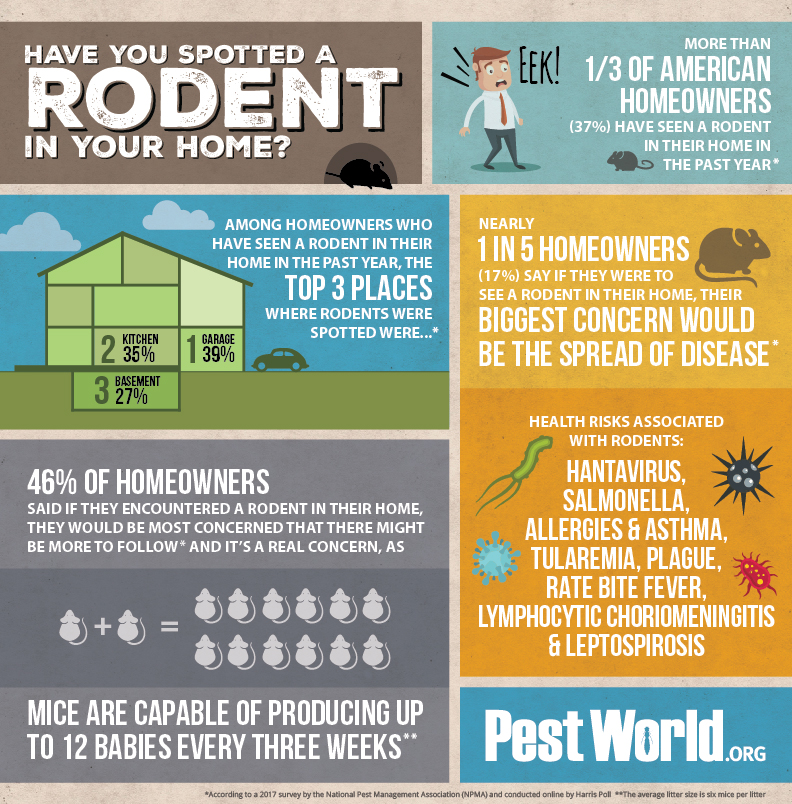Pest-Proofing Your Garden: Tips For Keeping Outdoor Pests Away
Pest-Proofing Your Garden: Tips For Keeping Outdoor Pests Away
Blog Article
Write- https://www.pehub.com/centeroak-backed-palmetto-exterminators-acquires-pestnow-and-forms-entomo-brands/ Composed By-Shaffer Merritt
Imagine your garden as a sanctuary, an area of serenity and appeal. However, the presence of exterior parasites can swiftly disrupt this idyllic picture. What happens if there were straightforward yet effective ways to maintain these unwelcome site visitors away and shield your garden sanctuary? By adhering to a few useful suggestions and applying natural techniques, you can develop a harmonious exterior area where your plants can grow uninterrupted.
Natural Parasite Deterrents
To maintain pests away from your garden normally, plant fragrant natural herbs like mint and lavender. These great smelling plants not only add appeal to your garden yet likewise function as effective bug deterrents. Parasites like insects, flies, and even some garden-damaging pests are driven away by the solid aromas discharged by these herbs. Simply positioning them tactically around your garden can help produce an all-natural obstacle against unwanted parasites.
Along with mint and lavender, consider planting various other natural herbs like rosemary, basil, and lemongrass to further enhance your garden's pest-proofing abilities. natural termite control function as natural repellents yet likewise have actually the included advantage of being useful in food preparation or crafting homemade solutions.
Strategic Plant Placement
Think about the format of your yard and the sorts of plants you need to strategically place them for maximum pest-proofing effectiveness.
Start by organizing plants with comparable resistance to pests with each other. By doing this, you can create a natural obstacle that prevents insects from spreading throughout your yard.
Furthermore, positioning pest-repelling plants like marigolds, lavender, or mint near more prone plants can help safeguard them. High plants, such as sunflowers or corn, can serve as a guard for much shorter plants against insects like rabbits or ground-dwelling pests.
Remember to leave enough room between plants to boost air circulation and minimize the threat of illness that pests might bring.
Furthermore, think about planting strong-smelling natural herbs like rosemary or basil near susceptible plants to puzzle pests' senses and make it harder for them to find their targets.
Effective Pest Control Techniques
For combating yard parasites properly, carrying out a multi-faceted parasite control method is essential. Beginning by motivating all-natural predators like birds, ladybugs, and hoping mantises to aid keep pest populaces in check. Presenting plants that bring in these advantageous insects can help in pest control. Additionally, exercising excellent yard health by getting rid of particles and weeds where parasites could hide can make your garden much less hospitable to undesirable site visitors.
Think about using physical barriers such as row cover fabrics or netting to protect susceptible plants from pests like caterpillars and birds. Applying organic chemicals like neem oil or insecticidal soap can likewise work against specific pests while being much less harmful to valuable pests and the environment. It's essential to turn your crops each season to stop the accumulation of insect populations that target details plants.
Regularly inspect your plants for signs of insect damage so you can take action quickly. By combining these techniques and remaining alert, you can effectively manage garden parasites and appreciate a flourishing, pest-free garden.
Verdict
So, there you have it - with the appropriate strategies, you can maintain pesky outdoor pests away from your garden and help your plants thrive.
Did you recognize that growing mint has been shown to ward off insects and various other pests, lowering the demand for harmful chemicals by up to 60%?
By incorporating all-natural deterrents and clever planting strategies, you can produce a gorgeous and pest-resistant garden sanctuary for you to delight in.
